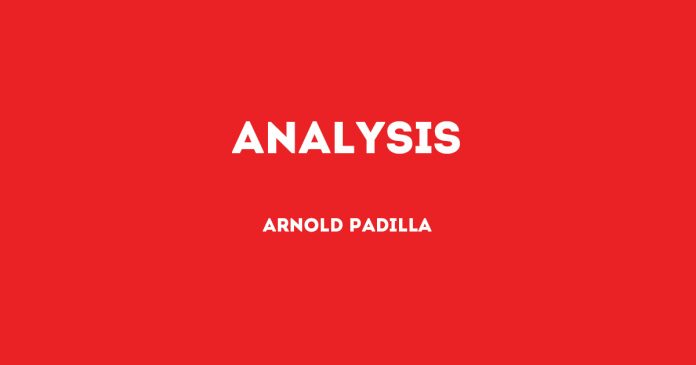
BY ARNOLD PADILLA
EXACTLY how much are jeepney drivers losing because of the unabated oil price hikes?
The pump price of diesel has already increased by P18.45 (US$0.36) per liter (including the latest adjustments on Oct. 26) this year. That is equivalent to two passengers paying the minimum fare of P9 ($0.18).
Considering that jeepneys are only allowed a maximum of 50-percent passenger capacity, the impact on a driver’s income is tremendous. A 20-passenger jeepney can carry only 10 passengers. With the rise in diesel prices this year, jeepneys practically take a maximum of just eight passengers paying the minimum fare.
A MONTH’S WORTH OF RICE
Let us look at the UP Diliman to SM North Edsa route, for instance. This entire route is about 13.25 kilometers roundtrip. Based on one study, a jeepney consumes around one liter of diesel per seven kilometers. So, the UP-SM roundtrip uses up about two liters of diesel. Meaning, a driver loses P36.90 ($0.73) per roundtrip due to the price hikes. That amount is almost equivalent to the lowest rice price per kilo (P38 or $0.75) in the National Capital Region (NCR).
A 20-passenger jeepney usually has a full tank capacity of 60 liters, which means that the driver is spending P1,107 ($21.83) more to fill up his tank. That is equivalent to about 29 kilos of rice – or two weeks’ worth of the regular consumption of a five- to six-member household.
For the UP-SM driver, his full tank will last for around 30 roundtrips. Assuming he makes ten roundtrips per day, it means that he must refill every three days – or twice in one week. He thus spends P2,214 ($43.67) more on diesel due to the price hikes. That is equivalent to a month’s worth of his household’s rice consumption.
However, raising the minimum fare will only shift the burden of the oil price increases from the drivers to the commuters. Like the jeepney drivers, commuters are also working-class people whom the pandemic severely battered and barely make a living.
What about the proposal to revive the Gloria Arroyo-era Pantawid Pasada program?
For one, the cash aid will likely be too small to make a dent in runaway oil prices. The propposed subsidy cited in media reports, for instance, is between P1,700 to P2,000 ($33.53 to $39.45) per month.
As mentioned, the UP-SM driver is already spending an additional P2,214 ($43.67) per week. But the amount of cash subsidy is a secondary issue. The primary point is that the Pantawid Pasada merely shifts the burden of the oil price hikes to the taxpayers, including the drivers themselves.
MAKING OIL FIRMS, GOVERNMENT ACCOUNTABLE
Meanwhile, oil companies that profit immensely from high prices and unreasonable price hikes are left off the hook. Policy interventions should primarily target them. One is through effective price regulation to stop their profiteering when they adjust prices every week.
Government must also be held accountable as well. The people should press the policymakers to abolish the regressive and exorbitant fuel taxes, such as the 12-percent value-added tax (VAT). This move can immediately bring down pump prices and provide much-needed relief for the jeepney drivers and the public. (To be continued) (Bulatla.com)/PN





